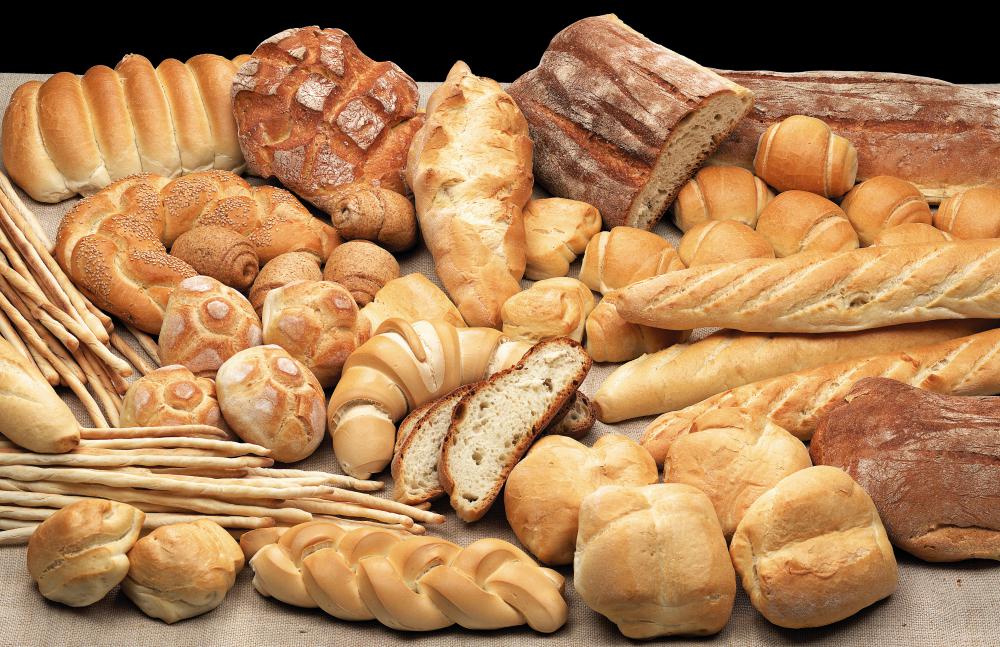At DelightedCooking, we're committed to delivering accurate, trustworthy information. Our expert-authored content is rigorously fact-checked and sourced from credible authorities. Discover how we uphold the highest standards in providing you with reliable knowledge.
How Do I Choose the Best Self-Rising Flour?
Self-rising flour is often use to make delicate biscuits, cookies and cakes. Available in most supermarkets, it has baking powder and salt already mixed into it. With this flour, you don't have to spend as much time fussing with measuring spoons and don't have to worry about being out of something. Not all self-rising flour is the same, however. The best self-rising flour is widely available, uses a specific type of baking powder, has no added preservatives and is designed for use in delicate baked goods, not yeast-risen breads.
Often, the best flour is a widely-available brand, ideally one available in all parts of your country or region. This is especially true if you've recently moved or are new to baking. Locally-produced flour is made from different varieties of wheat. That difference creates an unpredictable protein content, and a little too much or too little protein can ruin a recipe. Widely available brands get their wheat from trusted, consistent suppliers.

Quality flour will also use a specific kind of baking powder. Read the label of the flour powder you are considering buying. If the ingredients include “sodium aluminum sulfate,” put it back. This ingredient – an aluminum-based acidic powder designed to react with baking soda and produce lift – can give baked goods a soapy taste. Instead, go with flours that use monocalcium phosphate, a tasteless acidic ingredient that won't affect the taste of delicate baked goods.

The best self-rising flour will also be free from chemical preservatives. As previously mentioned, flour with baking powder and salt added includes added salt. Dangerous microbes do not reproduce well in salty environments, thus there is no need for other preservatives. Some manufacturers may chemicals in order to increase product shelf-life, which increases their profit margin but can make your finished product taste off. Buy self-rising flour that contains nothing but wheat, baking powder, and salt.

Lastly, good self-rising flour will be intended for use with baked goods that do not require yeast. The flour's packaging should state that it is intended for biscuits, cakes, and cookies, not for sandwich or artisan bread. Bread generally requires a higher protein content than that present in self-rising flour. A manufacturer that claims you can use their flour for all types of baked goods does not understand food chemistry and their products should be avoided in favor of more knowledgeable sellers.
AS FEATURED ON:
AS FEATURED ON:














Discussion Comments
Maybe you are used to the taste, as both of these self rising flours contain sodium aluminum sulfate. You may want to check your brand of baking powder you use at home. It may also contain sodium aluminum sulfate. You could try a brand of baking powder that doesn't contain sodium aluminum sulfate like Mumfords or the Target house brand and see if you like it better. Or not, if you're happy with what you use!
I so rarely use self-rising flour, I'd hardly know what to look for if I wanted some! I just don't ever buy it.
Now, like Pippinwhite, I do buy self-rising cornmeal, but that's because I don't want to deal with measuring the other ingredients since I don't exactly use a cornbread recipe. I just add milk and mix until the consistency is like I want it.
I honestly don't know what I'd use self-rising flour for, anyway. It's just not something I ever use, even for quick baking. For that, I generally use a baking mix or something like that/
I generally use Martha White or White Lily flour if I'm buying self-rising flour. Both brands have been around for years and I've used both extensively. I never looked at the ingredients and I've never noticed that either type of flour gave my baked goods a soapy taste.
I also use their self-rising cornmeal and my cornbread tastes just fine, every time. I generally get whichever brand is cheaper, and I've always been satisfied with the results. So I don't know what ingredients they use for leavening, but neither has ever given anything I've made an off taste.
Post your comments